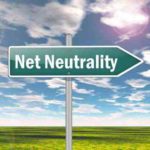Educators, ed-tech companies ask for stronger net neutrality rules to protect innovation and preserve the democratizing power of the web

Letting broadband companies charge more for content providers to stream their services at faster speeds threatens ed-tech innovation, thousands of school stakeholders argue.
The Federal Communications Commission’s latest “net neutrality” proposal has stirred controversy because it would allow companies like Google, Netflix, and Skype to pay extra to ensure faster transmission of their content online.
But this proposal threatens the existence of smaller companies that can’t afford to pay these higher rates, many critics say—including ed-tech startups that don’t have the resources of larger, more established competitors.
“A few years ago, you couldn’t even imagine that the internet could become a system of have and have-nots protected by corporate gatekeepers,” said Sen. Patrick Leahy, D-Vt., chairman of the Senate Judiciary Committee, who has written legislation to direct the FCC to ban such prioritization deals.
The FCC has struggled for years to come up with a net neutrality plan requiring broadband providers to give fair treatment to all internet traffic flowing over their networks.
The courts have limited previous attempts by the FCC to regulate broadband providers. The agency currently defines broadband as a lightly regulated information service. That means it’s not subject to the obligations that traditional telecommunications services have to share their networks with competitors and treat all traffic equally.
The FCC could use part of its charter, Title II of the Communications Act, to reclassify broadband as a public utility. That would give the agency broader authority to enforce net neutrality principles.
But the FCC is also trying to balance the objections of broadband providers and free-market supporters, who argue that imposing 1930s-era regulations on the modern internet is a recipe for disaster. Broadband providers say they should be free to charge more for an internet “fast lane” as a way to manage the increasing flow of data over their networks.
Aiming to find a middle ground, the FCC has proposed a net neutrality framework that would prohibit broadband companies from randomly discriminating against certain types of traffic over their networks, without reclassifying broadband as a Title II service. The FCC’s proposal also would give broadband providers some latitude to manage their networks by charging more for priority services.
The FCC set a deadline of Sept. 15 for public comments on its proposal. The vast majority of the record-breaking 3.7 million comments filed by the deadline—including at least 4,000 comments that referred specifically to schools—said the agency’s plan doesn’t go far enough to protect a fair and open internet.
(Next page: What school stakeholders had to say about the FCC’s proposal)
“A pay-to-play internet worries me because new, innovative services that can’t afford expensive fees for better service will be less likely to succeed,” wrote Jim Anderson, director of technology for a K-12 school in Brooklyn, N.Y.
“I need to know that there will not be barriers to entry for the new ideas and services that I hope our students will one day to bring to the marketplace,” Anderson wrote. “… Likewise, I am concerned that resources our students and teachers need to access will be priced out of our reach as an independent, non-affiliated school.”
Ed-tech companies such as Poll Everywhere and OpenCurriculum argued their services couldn’t exist without more stringent net neutrality rules that prevent broadband providers from creating multiple tiers of service.
“When I started the company two years ago, I had less than $500 in my bank account. … But I was in luck—the internet is such a powerfully democratizing force that my lack of any money did not stop me from building a company that has now had an international impact,” wrote Varun Arora, CEO of OpenCurriculum.
“Would I have been able to afford to pay Verizon, Comcast, or any other ISP for fast lanes to reach the thousands of customers back then? Absolutely not. There are and were far larger media houses in education, or education companies with media presences, who could have crushed our increasing popularity any day, given a preference or advantage on the only medium for us to reach and serve our customers—the internet.”
An overwhelming majority of comments from education stakeholders pushed for stronger net neutrality rules. One exception was a response co-written by John G. Flores, executive director of the United States Distance Learning Association, and Ed Luttrell, president of National Grange, an agricultural advocacy group.
“We believe that encouraging competition and restricting government intervention in the private telecommunications markets is the best way to expedite expansion of broadband networks to rural communities,” Flores and Luttrell wrote.
When the FCC proposed reclassifying broadband as a utility in 2010, “investors withdrew about 10 percent of broadband providers’ market capitalization, equaling about $18 billion,” they argued.
Whatever rules the agency adopts must protect the needs of students, wrote Doug Levin, executive director of the State Educational Technology Directors Association (SETDA).
“SETDA calls upon the FCC to ensure that the learning needs of children and youth are not only protected in the forthcoming rulemaking, but privileged,” Levin wrote. “The educational needs of the nation’s children must not be marginalized for commercial interests, and the good work that has been undertaken in the last year to advance broadband for learning by the White House, the FCC, and U.S. Department of Education must be protected and extended.”
FCC Chairman Tom Wheeler says he hopes to enact new net neutrality rules by the end of the year.
eSchool News Special Projects Editor Dennis Pierce wrote this report, using additional reporting from Vera Bergengruen of the McClatchy Washington Bureau. © 2014, McClatchy Washington Bureau; distributed by MCT Information Services.
- Classroom Learning - April 5, 2024
- Advantages and Disadvantages of Classroom Management - April 5, 2024
- What are Disadvantages of Classroom Management? - April 5, 2024

